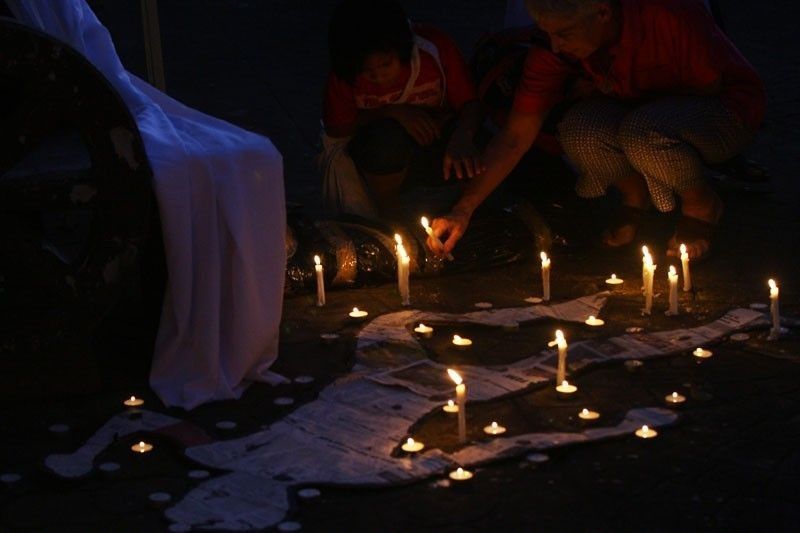Bulacan is epicenter of 'drug war' killings, Amnesty claims in new report

MANILA, Philippines — The government’s "war on drugs" remains a “large-scale murdering enterprise” but the epicenter of killings has shifted, human rights watchdog Amnesty International said Monday.
In its report released Monday, the London-based rights group said that Bulacan is now the “bloodiest killing field” in the Philippines. According to media reports that Amnesty cited, there were 827 drug personalities killed in the province between July 2016 and February 2019.
Data released by the Philippine National Police last year showed that 542 drug suspects were killed in police operations in Central Luzon, the region where Bulacan is.
The figure was higher than the 285 drug personalities killed in National Capital Region—previously the epicenter of alleged drug-related killings in the country.
In a press briefing at the Palace on Monday, presidential spokesperson Salvador Panelo accused Amnesty International of "politicizing the so-called extrajudicial killings in this country."
"Let our own group assist our Filipinos. We don’t need interference from others. We have own human rights groups," he also said. Amnesty International actually has an office in the Philippines.
"We are precisely supportive of any victim of alleged police abuse to file charges, so we will know exactly what their complaint is. So that the legal process will start rolling," he also said.
RELATED: Bulacan drug war: 123 dead in 6 months
Transfer of Metro Manila cops
Amnesty attributed the rise in killings to the transfer to the province of police commanders who previously supervised drug operations in Metro Manila.
“They say the increase must be understood in the context of who is in charge of the police there, at both the city and provincial levels. A closer looks shows that several commanders who previously held posts in Metro Manila when it was the region where most drug-related killings were reported have been promoted and are now at the helm in various positions in Bulacan and the wider Central Luzon,” the Amnesty report read.
One of the police officers who made an exodus to Bulacan is Col. Chito Bersaluna, the police chief of Caloocan City at the time when cops killed 17-year-old Kian delos Santos in August 2017. Bersaluna, who has since been cleared in the killing of the teenager, is now Bulacan's top cop.
Human Rights Watch earlier called the promotion of Bersaluna a “cruel affront to the families of victims.”
Brig. Gen. Joel Coronel, head of Manila Police District during the peak months of the government’s anti-narcotics campaign, is now regional director of Central Luzon.
“The transfer of senior officials to regions where killings then surged is an alarming indicator of impunity. The Duterte adminstration’s continuing efforts to deny and deflect responsibility are nothing short of mendacious,” Nicholas Bequelin, Amnesty South East Asia regional director, said.
The rights group said it looked into the 27 killings in Bulacan between May 2018 and April 2019 and conducted interviews with witnesses, families of victims and local human rights workers.
RELATED: Cops kill 12 suspects in Bulacan overnight raids
Call for probe
Amnesty said the continued drug war killings must prod the United Nations to initiate an investigation into the alleged human rights violations in the country.
“President Duterte’s ‘war on drugs’ continues to be nothing but a large-scale murdering enterprise for which the poor continue to pay the highest price,” Bequelin said.
Last week, Iceland submitted a draft resolution that will push the UN Human Rights Council to call for actions on the human rights situation in the country. The 47-member council is expected to vote on the resolution before its three-week session ends on July 12.
The rights group also called on the Office of the Prosecutor of the International Criminal Court to expedite its examination into the situation and open a full criminal investigation.
The Philippines formally withdrew from the Hague-based tribunal on March 17, 2019.
Figures from the PNP released last month put the number of ‘drug personalities’ killed in law enforcement operations at 6,600. But some rights groups have estimates of as many as 27,000 killed.
RELATED: 'Maganda 'yun': President praises bloody Bulacan raids
- Latest
- Trending


























